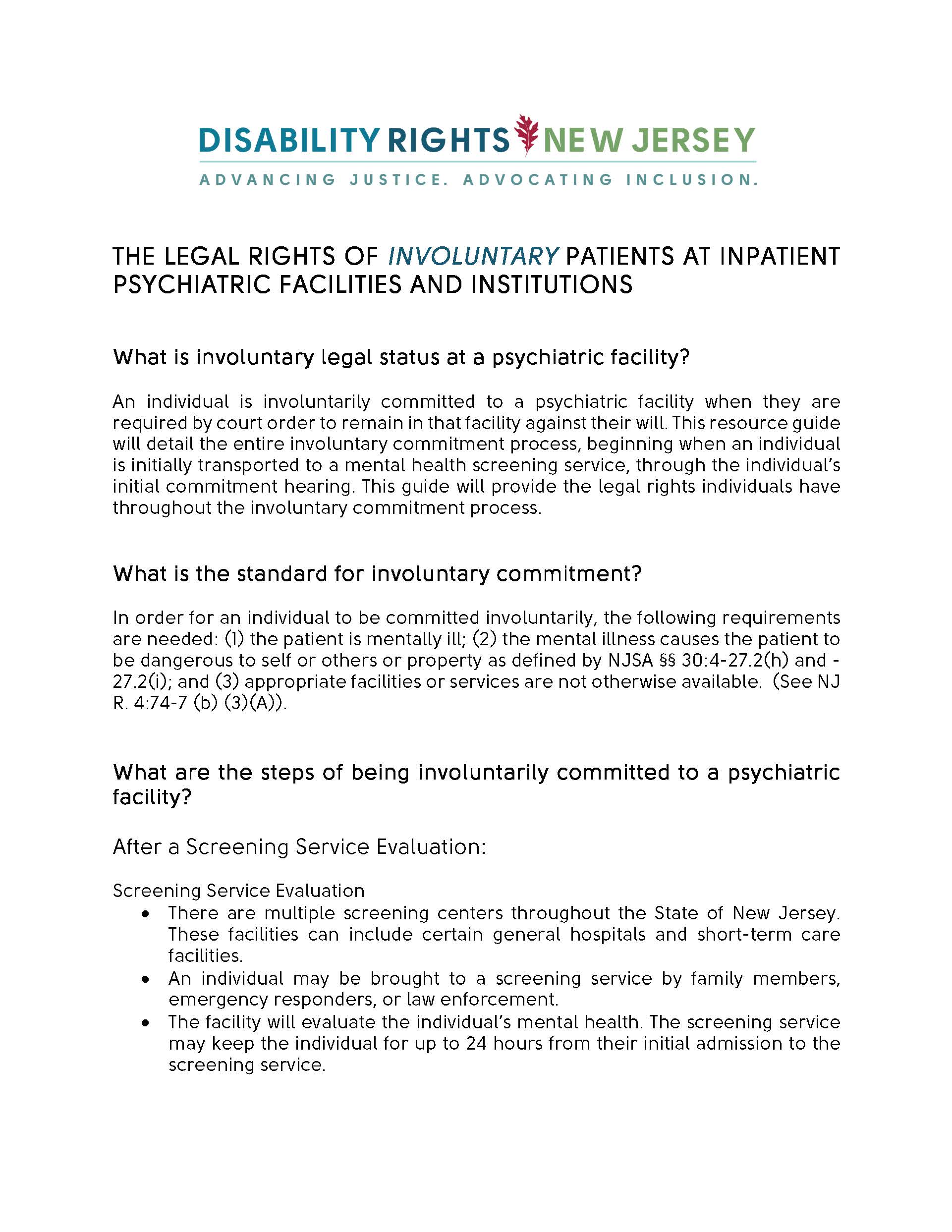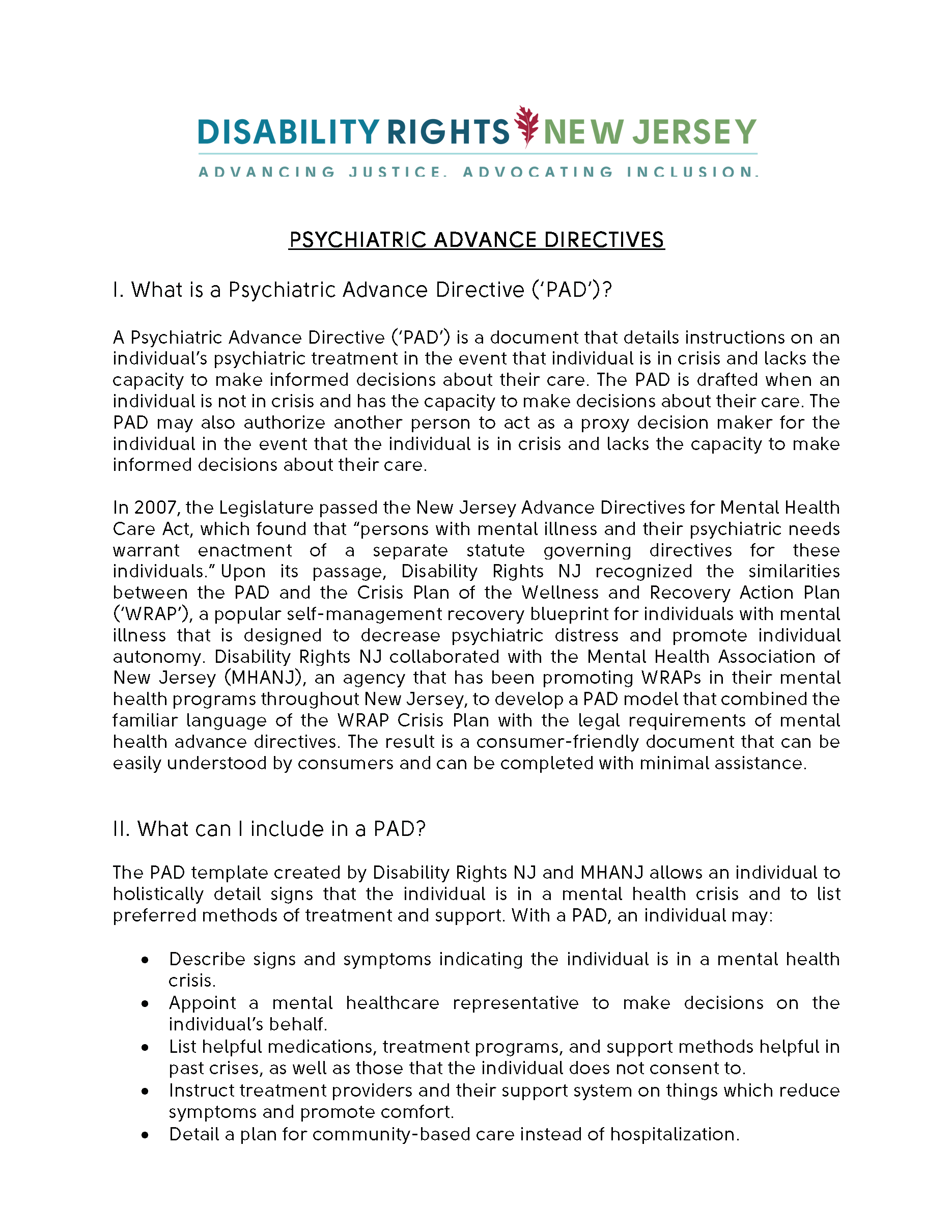Resident and Patient Rights
Disability Rights New Jersey advocates on behalf of individuals with disabilities, including, but not limited to, those with significant mental illnesses, the elderly, and those with Traumatic Brain Injuries (TBIs), who reside and receive services in in-patient facilities and institutions. Our advocacy includes: routine monitoring; individual and facility-wide investigations; individual advocacy; assistance with self-advocacy; education and outreach; litigation reform; and systemic activities such as class action litigation. Disability Rights NJ represents the individual who receives services in the institution, but in some cases may provide assistance to guardians or individuals who may have a healthcare proxy, power of attorney, or guardianship over an individual receiving services in an institution.
How We Help
If you are a resident in an institutional setting and feel that your legal rights are being violated due to abuse or neglect, you may contact the Disability Rights NJ intake team. We will review your case, and we can provide services if: (1) you have a disability; (2) you have a legal issue related to your disability; and (3) your legal issue falls within our agency priorities. [For a list of our priorities, please click HERE]. An attorney or advocate will then be in contact with you and will provide you with referrals, brief services, or other forms of legal assistance.
Know Your Rights
Throughout New Jersey, there live many people who have disabilities, including physical and mental disabilities. These individuals may live at home, or they may be committed in institutional settings, including: psychiatric hospitals, nursing homes, developmental centers, and within the prison system. At Disability Rights New Jersey, the civil rights and liberties of individuals with disabilities is very important. Disability Rights NJ can assist individuals with significant mental illness when their rights are violated.
These rights include:
- The right to a safe living and treatment environment
- The right to be free from abuse, neglect, and corporal punishment
- The right to informed consent about treatment and medical care
- The right to be free from unnecessary medication
- The right to legal services concerning commitment or confinement in an institutional setting
If you believe your rights have been violated in one of these ways, we encourage you to contact us.


